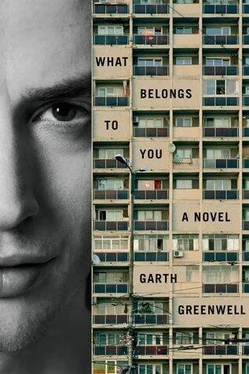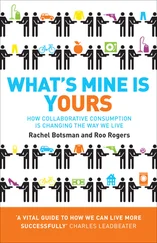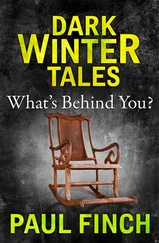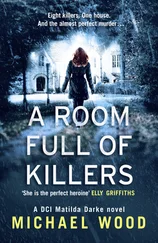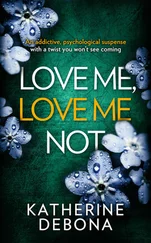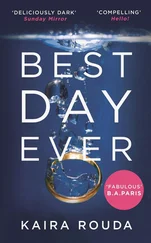It was now, as the boy wept, as I watched my mother watch him guardedly, as we all withdrew into our privacies so as to allow the boy his own, that I felt an odd aligning of things, that weird pressure as they found their place and as I found my place among them, my mother and the boy, the hot compartment, my memories of Mitko that came back so fiercely I was wrung by them, by the thought of our last meeting that had left me even after all these months bereft. I pulled my notebook from my bag, wanting to catch this before it faded, scribbling not sentences but impressions, a certain arrangement of things, even as I heard the boy, who had found his voice again, begin his recriminations. He was holding his arm where she had grabbed him, pressing it bent against his chest. Schupi mi rukata , he said, you broke my arm, it hurts, you didn’t have to pull so hard, but the woman was unmoved, used to his dramatics, I supposed. You should do what I tell you, she said. It’s not your train, he responded, less pained now than sullen, you didn’t build it, you didn’t buy it, using logic like a rampart he could retreat behind, you can’t tell me what to do, but none of this merited any reply. There’s nothing for me to do, he went on, trying another tack, I don’t have anything to play with, I don’t have any toys, you won’t let me climb, I’m bored, he said, skuka mi e . He was on better ground here, I thought, there was some justice in his complaint, though the woman still sat silent. My arm, he said a moment later, as if remembering, it really hurts, and he held it out to her as she took it again in her hand, gently this time, looking concerned, saying Let me see, and then yes, it’s very bad, I’m afraid we’ll have to cut it off, so that suddenly he was giggling, twisting away as she leaned in, still holding his arm, and began to tickle him. He was all joy now, the tears barely dry on his face, and after a moment at this game he ended draped across her lap, his arms cast about her, a posture so sweet it was almost painful to see, as it was painful to see my mother, who watched them with such longing I had to look away. I could remember a time when we had touched like that, my mother and I, when I sought out her presence and her touch, too, and I wondered where that ease and openness had gone, and why they had been replaced with such stiff discomfort, a sense almost of taboo that kept me from making any answer to her expressions of love. I felt for the first time how cruel I had been, when I had stopped answering her calls and e-mails, which grew increasingly frantic until they fell away. For a time I had been lost to her, and she couldn’t have known I would return. They stayed like this for some time, the woman and the boy, with his arms around her and her hands resting on his back.
I lost myself then, writing my notes, so that it was a few moments before I became aware that the boy was watching me; he had pushed himself from his grandmother’s lap and was sitting upright, and there was an intensity to his looking, a gravity of desire. I want to write too, he told his grandmother, and while she looked in her bag for a pen, he leaned forward and shyly, as if she might object, drew from the metal bin one of the cards my mother had discarded from her magazines, and then, when she nodded at him and smiled, a second and a third. He settled back, and holding the cards on his lap he began to write, in large block capitals copying out the three words, BUSINESS REPLY MAIL, again and again, practicing the alphabet, I realized, the letters uncertain in his childish hand, a Cyrillic Б replacing the Latin as often as not. I can’t say why it affected me as it did, his studiousness, the quiet earnestness with which he worked, but it was heartbreaking, the more so when he turned to the woman and said When I’m finished, he will read it, inclining his head toward me. Maybe now that I saw Mitko in the boy, any future I could imagine for him gave me something to grieve. Should he fail in his studies, or should he find after them there were no jobs to be had, should he turn, like Mitko, to drink or to drugs, thwarting his grandmother’s hopes, there was the lost promise of the bright boy before me. But if the boy made the most of that promise, if he left Bulgaria (where there is no future, my students tell me again and again, where there is only the narrowing horizon of diminished expectations), if he thrived beyond anything his grandmother hoped, then there was the thought, unbearable to me, of what Mitko might have been. By the third paper card the boy’s writing had lost its shape altogether, softening and flattening out until it was just a wavy line across the page. As the train slowed in its approach to Plovdiv, where my mother and I would spend the night — I wanted her to see the beautiful old city, the ornate wooden houses climbing the hills — he held up this last card with its scribbles for me to read. That must be a language I don’t know, I said, smiling, I can’t read it, and he seemed satisfied, he grunted and said Tova e ispanski , that’s Spanish, making me laugh again. You’re very smart, I said, as his grandmother shook her head, it’s good to know so many languages. My mother and I were standing now, gathering our things, lifting our large bags from the rack, and I found I didn’t know how to say goodbye to the boy. I wanted to tell him to study, to work hard, above all to study his English, which he would be helpless without; it was his best chance, I wanted to say, but that’s the kind of thing one can never say, there’s no way to say it, or no way for it to be heard. And so instead I opened a small pocket of my bag, telling him I wanted to give him something, something you couldn’t find in Bulgaria, I said, and I handed him a drugstore peppermint from a packet my mother had brought over for me. It was my favorite candy when I was a child, and I was glad beyond words at the pleasure it gave him when he twisted off the plastic wrapper and popped it in his mouth. Then the train stopped, and my mother and I moved into the corridor, clumsy with our bags and with the prospect of being alone together. As we joined the line of people getting off at the last stop before Sofia, I looked once more at the little boy, whom I felt I would never forget, though maybe it wasn’t exactly him I would remember, I thought, but the use I would make of him. I had my notes, I knew I would write a poem about him, and then it would be the poem I remembered, which would be both true and false at once, the image I made replacing the real image. Making poems was a way of loving things, I had always thought, of preserving them, of living moments twice; or more than that, it was a way of living more fully, of bestowing on experience a richer meaning. But that wasn’t what it felt like when I looked back at the boy, wanting a last glimpse of him; it felt like a loss. Whatever I could make of him would diminish him, and I wondered whether I wasn’t really turning my back on things in making them into poems, whether instead of preserving the world I was taking refuge from it. The doors opened, the line began to move, and I saw that the boy was already clambering into the seats we had left, claiming a new space as his own. And then my mother and I stepped off the train into the evening air, nearly gasping in relief at its freshness.
I must have been sleeping deeply, one night that spring, I must have been in a state beneath dreams or any kind of thought, when suddenly I bolted awake. Just for an instant, I felt what I had felt a few weeks before, when in the dead of night there was a violent jolt and shuddering, a movement that violated not just my sense of physical law but some deeper certainty I had taken for granted. I was pinned to my bed by an animal fear as the world shifted with a sound I had never heard before, a deep grinding thunder and the sound of alarms, all the cars of my neighborhood shrieking their warnings, a bewildering cacophony of patterns and tones. It was the strongest earthquake to strike Bulgaria in a century, the papers would say the next morning, though really it had only been of a middling strength. In Sofia the blokove had swayed but none had fallen, and there wasn’t much damage beyond broken windows and cracked facades; even in the villages only the oldest structures collapsed. There was one death, the articles said, an old woman whose heart stopped at the shock of it. It was the first earthquake I had ever experienced, and the first time I had known that absolute disorientation and helplessness, the first time I had felt in that incontrovertible way the minuteness of my will, so that underlying my fear, or coming just an instant after it, was total abandon, a feeling that wasn’t entirely unpleasant, a kind of weightlessness. It was the noise that made me feel that fear again, just for a moment, and then I was on my feet as I realized the sound that had woken me wasn’t a calamity, but someone pressing again and again the whirring chime of my door, while at the same time striking the door itself, not knocking but pounding, quickly and heavily. I knew who it was, of course, though he had stayed away for many weeks. I had promised R. I wouldn’t let him in again if he returned, You can’t speak to him, he had said, if you speak to him, if you give any sign to him at all, he will come back; he has to stop existing for you, he said, using almost those words. But what could I do, I thought as I moved to the door, calling out to stop the noise, which must already have woken the neighbors and which soon would draw them out, in curiosity or anger; what could I do when he was constrained by so little, the man on the other side of the door, who kept up his noise despite my calling to him from the hall, or perhaps he hadn’t heard me over that noise, since at the first motion of my hand on the key it stopped all at once, as if now he were ready to be patient. When I turned the heavy tumblers in their grooves and then the handle, intending to open the door just slightly, a weight was applied from the other side, and as I stepped back quickly, almost falling, I thought maybe he wasn’t alone, that he had come finally to see through the threats he had made in Varna.
Читать дальше
